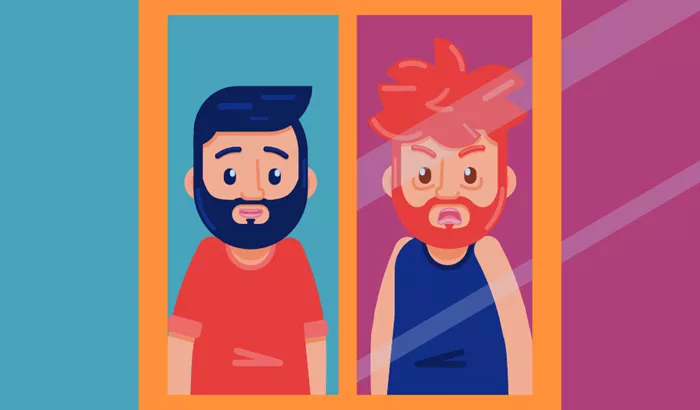Dissociative disorders are mental health conditions where an individual experiences a disconnection between their thoughts, feelings, memories, and sense of identity. These disorders can manifest in different ways and can significantly affect daily functioning. Understanding the types of dissociative disorders can help in early identification, treatment, and support for those affected. This article provides an overview of the various types, symptoms, causes, and treatment options for dissociative disorders.
What Are Dissociative Disorders?
Dissociative disorders are a group of mental health conditions that involve a disconnection or separation between a person’s thoughts, memories, feelings, or sense of identity. This disconnection can cause people to feel detached from reality, themselves, or the world around them.
Types of Dissociative Disorders
Dissociative Identity Disorder (DID)
Dissociative Identity Disorder, previously known as Multiple Personality Disorder, is one of the most well-known types of dissociative disorders. It occurs when an individual develops two or more distinct identities or personality states. These identities can take control of the person’s behavior at different times, often resulting in memory gaps. DID is often linked to severe trauma experienced during early childhood.
Dissociative Amnesia
Dissociative Amnesia is characterized by an inability to recall important personal information, often after a traumatic or stressful event. This memory loss is more than just normal forgetfulness. It can involve losing memories of specific events, time periods, or even entire aspects of one’s identity.
Depersonalization/Derealization Disorder
Depersonalization involves feeling detached from oneself, as if you are an observer of your own thoughts, feelings, or body. Derealization, on the other hand, involves feeling detached from the world around you, as if things or people are unreal. In some cases, individuals may experience both depersonalization and derealization simultaneously.
Other Specified Dissociative Disorder (OSDD)
Other Specified Dissociative Disorder includes symptoms of dissociation that do not neatly fit into the categories of the other dissociative disorders. However, these symptoms still cause significant distress or impairment. Individuals with OSDD may experience dissociation during certain situations or in a less severe form.
Causes of Dissociative Disorders
Dissociative disorders are often caused by trauma or extreme stress. Childhood abuse, especially physical, sexual, or emotional trauma, is a common factor in the development of dissociative disorders. Other potential causes may include overwhelming life events, neglect, or witnessing traumatic events.
Symptoms of Dissociative Disorders
The symptoms of dissociative disorders can vary greatly depending on the type. However, common signs include:
Gaps in memory
- Feeling detached from one’s body or thoughts
- Experiencing a shift in identity or personality
- Inability to recall personal information
- Difficulty functioning in daily life due to dissociative episodes
Diagnosis of Dissociative Disorders
Diagnosing dissociative disorders can be challenging, as their symptoms often overlap with other mental health conditions such as anxiety, depression, and post-traumatic stress disorder (PTSD). A thorough clinical evaluation, including interviews and questionnaires, is necessary to determine the correct diagnosis.
Treatment for Dissociative Disorders
Treatment for dissociative disorders typically involves psychotherapy. The goal of therapy is to help individuals integrate their dissociative parts, recover lost memories, and develop coping strategies for trauma. Common treatments include:
Cognitive Behavioral Therapy (CBT): CBT helps individuals identify and change distorted thoughts and behaviors.
Dialectical Behavior Therapy (DBT): DBT focuses on building emotional regulation skills and mindfulness.
Eye Movement Desensitization and Reprocessing (EMDR): EMDR is used to process traumatic memories.
Medication: While there is no specific medication to treat dissociative disorders, antidepressants or anti-anxiety medications may be prescribed to manage symptoms.
The Role of Family and Support Systems
Support from family and friends is crucial for those suffering from dissociative disorders. Educating loved ones about the condition can help in providing empathy and understanding. Support groups and community resources can also play a significant role in the healing process.
Living with a Dissociative Disorder
Living with a dissociative disorder can be challenging, but with the right treatment and support, individuals can learn to manage symptoms and live fulfilling lives. It is important to remain consistent with therapy and to develop coping strategies for managing stress and trauma triggers.
Conclusion
Dissociative disorders are complex and often linked to trauma or extreme stress. By understanding the different types, causes, and symptoms, individuals can better recognize the signs of these disorders. With appropriate treatment, including therapy and support, individuals can manage their symptoms and work toward recovery.
FAQs about Dissociative Disorders
1. What is dissociative identity disorder (DID)?
Dissociative Identity Disorder is a condition where a person experiences two or more distinct identities or personalities. These identities may take control of the person’s behavior at different times.
2. Can dissociative amnesia be treated?
Yes, dissociative amnesia can be treated with psychotherapy, especially therapies that focus on trauma and memory processing.
3. Is depersonalization/derealization disorder dangerous?
While it is not typically dangerous, depersonalization and derealization can cause significant distress and interfere with daily functioning.
4. What causes dissociative disorders?
Dissociative disorders are often caused by childhood trauma, such as abuse or neglect. They can also result from extreme stress or overwhelming life events.
5. Can medication help treat dissociative disorders?
Medications are not typically used to treat dissociative disorders themselves but may be prescribed to manage symptoms of anxiety, depression, or trauma-related disorders.
6. How is dissociative disorder diagnosed?
A diagnosis is made through clinical evaluation, which includes psychological assessments, interviews, and a detailed history of symptoms.
7. Can dissociative disorders be cured?
While there is no cure for dissociative disorders, treatment can help manage symptoms and improve quality of life. Many individuals recover and can live fulfilling lives with proper therapy and support.
Related topics:
- Split Personality VS Dissociative Identity Disorder: What Is The Difference
- What Are The 3 Types Of Personality Disorders
- Different Personalities: Things You Need To Know


